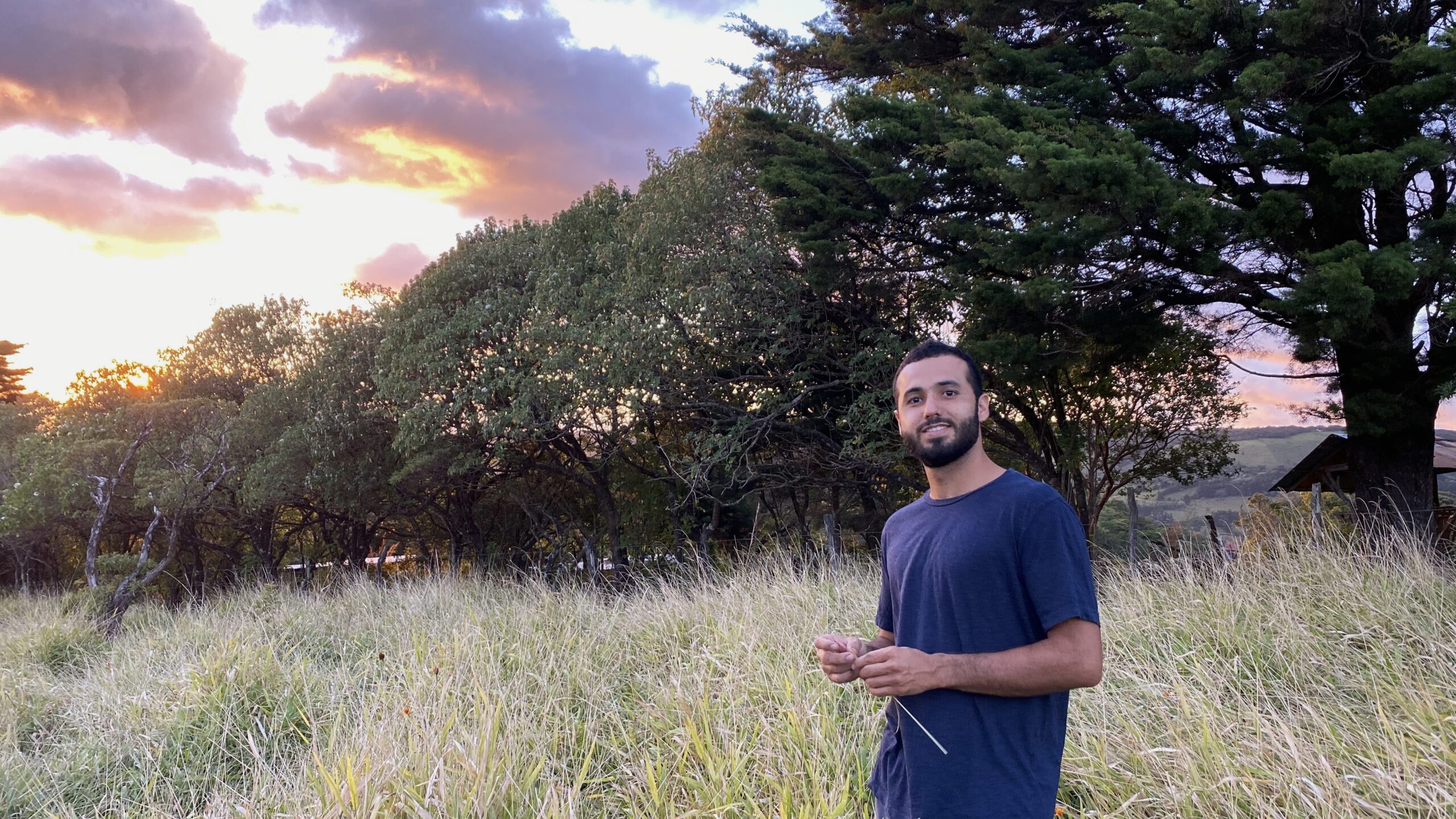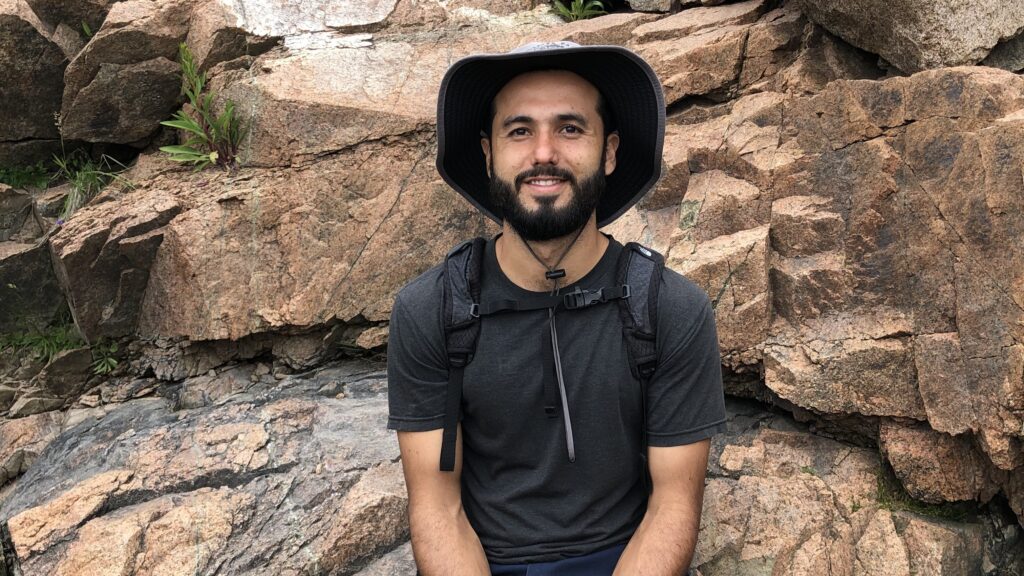Researcher Spotlight – Greivin Ulate

2022-23 Global Change Fellow
MS Student, Department of Forestry and Environmental Resources
Advisor: Dr. Madhusudan Katti
Every year the Southeast Climate Adaptation Science Center funds a multi-disciplinary cohort of Global Change Fellows representing colleges across NC State University. Here are some highlights about 2022-23 Fellow, Greivin Ulate and the applied research he’s conducting.
About You
What do you study?
As a master’s student, I study a range of different topics, including urban wildlife dynamics, environmental justice, and the intersection of anthropogenic development and wildlife conservation.
What (or who) influenced you to go into this field of study?
Since a young age, I have had an affinity for nature and an appreciation for its complexities. Growing up in Monteverde, Costa Rica, I was exposed to a biodiverse environment in which I was raised to be environmentally minded. In-depth knowledge of plants and animals were part of daily education in my household. Growing up in Monteverde, I was also exposed to strong and long standing conservation movements to protect the Cloud Forest and a rising tourism-based economy that brought substantial benefit to the community and protection of enigmatic species like the Three-wattled Bell Bird. At the same time, I saw firsthand the challenges of both conserving biodiversity and promoting economic growth; Monteverde demonstrates this delicate balance present in our world today. Overall, the place and context where I grew up and early connections with nature have shaped my interest in studying ecology and working to protect species and habitats through my work.
What are three words your friends would use to describe you?
My friends would likely say that I am adventurous, handy, and resourceful. I love to spend time outdoors camping and birdwatching and use my handiness and resourcefulness to create with what’s available around me.
About Your Research

Who will benefit from your research?
I hope that urban planners and land managers will benefit from my research on bird diversity in cities and will be able to apply findings directly to urban management approaches and plans. Ultimately, I hope my research will improve bird and human communities by facilitating more human-wildlife connections and making urban areas healthier ecosystems for birds and humans to thrive.
How can your research be used to inform management decisions?
The findings of my research could be used to inform urban planners and land managers about the economic, biotic, and abiotic factors that are linked to bird diversity in cities, such as income level and availability of green spaces. Bird diversity has long been studied and documented and can serve as an indicator of overall ecosystem health. Key decision makers could use this data to develop adaptation strategies and recommendations for expanding green infrastructure in cities to support a healthy ecosystem for both people and wildlife.
How would you describe your research to an expert in another scientific field?
My research focuses on assessing wildlife patterns and dynamics among neighborhoods in cities with varying demographic characteristics (e.g., income, realty prices, access to green spaces) and environmental stressors from climate change (e.g., rising temperatures, soil moisture, and native plant diversity). Through my research, I will use bird count data from these neighborhoods to determine if there is a relationship between bird diversity and the economic and environmental factors that shape these areas. Amidst rapid expansion of cities across the world, it’s important to understand how wildlife patterns and behaviors are affected by urbanization and how cities can support conservation of biodiversity and sustainability.
About Your Global Change Fellow Experience
How do you expect the SE CASC Global Change Fellows Program to impact you and your work?
Through the SE CASC Global Change Fellows Program, I have developed strong relationships with other Fellows, professors, and professionals in the field of climate adaptation and have learned about tools that I can apply in my future career. This fellowship program has set the groundwork for a career focused on conservation biology and serving as a link between stakeholders, researchers, and the public within a global context. Upon graduating, I hope to apply skills obtained from my master’s and the fellowship program to conduct ecological research and identify effective approaches for urban wildlife management and conservation. Specifically, topics addressed through the program like science communication and community engagement will be important in my future work with communities and teams.
What has been your favorite part of being a SE CASC Global Change Fellow?
My favorite part of being a Global Change Fellow has been the relationships and friendships I’ve made with other Fellows. From the field intensive to weekly meetings to extensive planning for seminars, we’ve grown close and have made an effective team. These friendships will go beyond the fellowship program, and our network will be invaluable throughout our future careers.
What advice would you give to an incoming Global Change Fellow to get the most out of their experience?
My advice would be to take full advantage of SE CASC professional development opportunities and to network with guest speakers during seminars to learn more about their work in practice. There are plenty of opportunities to meet very interesting and engaging leaders in the field through these events.
- Categories:
